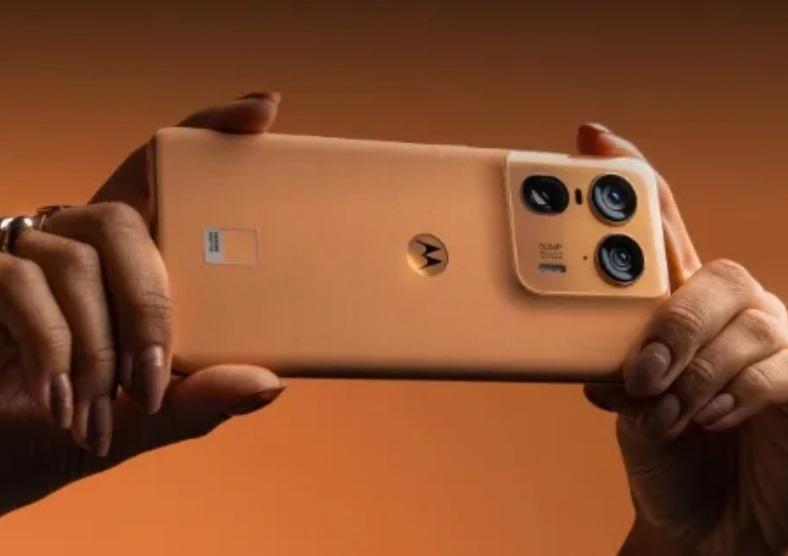估價收購
Mossberg: The PC is being redefined
Mossberg: The PC is being redefined
/
Keep your eye on the software — and on Apple
Share this story
If you became a frequent computer user starting anytime between, say, 1990 and 2007, there’s a good chance that your idea of a PC is a desktop or laptop running a mouse and keyboard-driven graphical user interface — most likely Microsoft Windows or, to a lesser extent, Apple’s (recently renamed) macOS.
But if you got attached to computing in the last 10 years, you very likely find it more natural and comfortable to do your digital tasks on a multi-touch device lacking a keyboard or mouse and running a new, simpler, and cleaner kind of operating system. This certainly includes an Android or Apple smartphone, or, possibly, a tablet running Android or iOS. These devices have become by far the most commonly, frequently, and extensively used personal computers. They are the new PCs.
Phones and tablets are the new PCs
Even older people have taken to Android and iOS in a huge way, though they can still rely on their traditional Windows and Mac laptops.
Of course, personal technology never turns over entirely, especially in as short a period as a decade. So the redefinition of the PC is an ongoing thing. Even students who might otherwise be permanently attached to their phones are still likely to use a MacBook, Windows laptop, or Chromebook some of the time.
Also, there’s a difference between the two newer types of PCs. Despite maturing, smartphones are still wildly popular. But tablets — including the powerful, market-leading Apple iPad — are still too often viewed as unsuitable for productivity and creativity. Their sales have fallen sharply in recent years, partly because their replacement cycle is long.
And there are all kinds of special factors that affect these changes. For instance, people who work in giant companies with rigid IT staffs may still be forced to use heavy laptops for tasks an iPad or even a smartphone could perform as well or better. Open-minded tech tinkerers may still prefer traditional PCs for work because they allow much more customization than, say, an iPad. And, even for those who recognize the speed and capability of tablets, the detachable keyboards available for them may be too inferior to the built-in keyboards on laptops to make it easy to rely on them as the principal device.
But I believe this massive redefinition is real, and that there are signs of optimism for even the lagging tablet part of it.
Signs of a tablet revival?
The tablet — or perhaps more aptly, the large-screen mobile device — is showing new signs of interest.
First, some laptops are getting ARM processors, the type which power most smartphones and tablets, and for which iOS and Android were built. That’s a big deal because the typical laptop has run on an Intel or Intel-compatible processor for eons.
Google has even trademarked a name for the processor used in its newly released ARM-driven Chromebook Plus. Microsoft has announced that it’s making it possible to run classic Windows apps on ARM devices.
I believe there’s a good chance Apple will introduce ARM-based Macs
While Apple has been silent on this matter, I believe there’s a good chance it will introduce ARM-based Macs. This is partly because it has an entire silicon design arm that creates wicked fast, efficient, proprietary ARM chips that get produced in large quantities for iOS devices and run rings around the lowest, most battery-sipping Intel processor Apple uses in its smallest MacBook.
In addition, Samsung just announced a new tablet, the Galaxy Tab S3, which is essentially an Android clone of Apple’s smaller iPad Pro. Both are squarely aimed at productivity. Both were built to use a detachable keyboard and a stylus. There’s definitely something going on when the premium tablet designs from every major vendor are converging on the same idea.
It’s the software, stupid
But the signs of a shift to ARM only set the stage for a bigger development: the migration of the most important modern software platforms, Android and iOS, to laptops and other traditional hardware that once defined the old kind of PC.
This is an exciting idea, for sure. But, I believe it won’t matter much until Apple builds an ARM-based laptop running iOS. Here’s why.
Google and Samsung have just tried to build a more modern laptop with the Chromebook Plus. It’s the first Chromebook built from the ground up to run both the cloud-based Chrome OS and Android apps, so popular on smartphones. Sadly, the Android part of this device is currently a miserable failure, although it’s still in beta. This is mainly because there are few Android apps that have been optimized to run well on a large screen — even a typical tablet screen — and it will take a long time to change that.
Apple’s iPad app advantage is the reason people might buy this kind of device
Microsoft, by contrast, does have a modern breed of multi-touch apps that work properly on a tablet or clamshell screen, and some are included on every Windows tablet and laptop. Unfortunately, partly because Microsoft has no smartphone business to speak of, it also lacks a critical mass of these new-style apps and, even on its tablets, relies instead on classic Windows apps.
Apple, by contrast, boasts 1.3 million tablet-optimized apps for the iPad, and these could presumably easily run on a small laptop with a built-in keyboard and touchscreen. This is more than a small advantage — it’s the reason people might buy this type of device instead of a traditional laptop.
It’s up to Apple to save the iPad
So… only Apple is well-positioned to transform the laptop by creating one that just runs just iOS. I am emphatically not talking about a traditional Mac, running macOS on ARM. Nor am I proposing a Mac that also runs iOS apps. I am taking about a laptop that only runs iPad apps, including the many productivity and creativity apps that have been built for that tablet.
I believe this would accelerate the redefinition of the PC. It would also resuscitate the iPad, albeit in a different form factor, which would complement, not replace, the current iPad and macOS laptops.
There would be many trade-offs to be decided. For instance, should the screen detach to become a regular iPad? (I personally wouldn’t care.) Would you still need a trackpad? (Probably.) Would it be called a Mac, an iPad something-or-other, or an entirely new thing? (Probably not a Mac.)
I asked Apple about this. I got a stock statement of allegiance to the current iPad and Mac, and a refusal to discuss future products.
But Apple has just started a new ad campaign pitting the iPad Pro against PCs, and nothing in it mentions the clamshell or built-in keyboard. (Microsoft has run similar ads claiming its tablets are better than MacBook laptops.)
Bottom Line
The definition of a PC, a personal computer, is already undergoing a profound change. A great laptop running the new kinds of user interfaces and apps that people now love on phones and tablets would be an exciting, big deal that would help seal the deal. But there hasn’t yet been a product that emphatically suggests the era of the traditional PC is fading. And it feels like an opportunity only Apple can seize.
 Motorola Edge 50 Ultra,搭載高通S8s Gen 3 旗艦處理器,機背採用木材背蓋,於4月推出(台灣未引進)。(圖翻攝Motorola 官網)
Motorola Edge 50 Ultra,搭載高通S8s Gen 3 旗艦處理器,機背採用木材背蓋,於4月推出(台灣未引進)。(圖翻攝Motorola 官網)
中國聯想集團(Lenovo)與旗下子公司Motorola,近日因4G/5G專利侵權訴訟糾紛,手機銷售業務、平板與ThinkPad
估價收購筆電等產品,在德國市場正面臨被禁售的命運。
外媒GizmoChina 報導表示,美國科技公司InterDigital控訴聯想集團(Lenovo)與旗下子公司Motorola於銷售的行動裝置產品中所使用的「WWAN 廣域無線網路通訊模組」技術(涵蓋3G、4G與5G)涉及專利侵權行為,且由於雙方對專利授權費用存有歧異,InterDigital 聲稱未獲得公平合理的許可費用,向德國法院提出訴訟。
受理該侵權訴訟案的德國慕尼黑地方法院日前作出聯想集團(Lenovo)敗訴的判決,在雙方調解無效,以及InterDigital繳交 400 萬歐元保證金向法院提出禁售令的臨時執行請求,目前聯想集團(Lenovo)與Motorola手機平板裝置,所有任何使用 3G、4G與5G行動網路的產品裝置,已被禁止在德國提供進口與銷售等業務。
 Motorola德國官網已下架所有智慧型手機產品,僅提供無線藍牙耳機的產品資訊。(圖翻攝Motorola德國官網)
Motorola德國官網已下架所有智慧型手機產品,僅提供無線藍牙耳機的產品資訊。(圖翻攝Motorola德國官網)
前Motorola德國官網已下架所有智慧型手機產品(包括新上市的Moto Edge 50Ultra在內),僅提供無線藍牙耳機的產品資訊。聯想集團(Lenovo)德國官網也移除了可支援4G/5G行動上網的
估價收購筆電與平板。
外媒指出,該訴訟案的禁售令判決,聯想仍可持續提出上訴撤回,推估雙方最終仍有望達成協商和解,但訴訟過程仍須耗費一段時間。受德國禁售令措施,短期內勢必對Motorola手機銷售業務與市佔率造成影響。
估價收購
估價收購
:format(webp)/cdn2.vox-cdn.com/uploads/chorus_asset/file/6261035/verge-11.0.jpg)